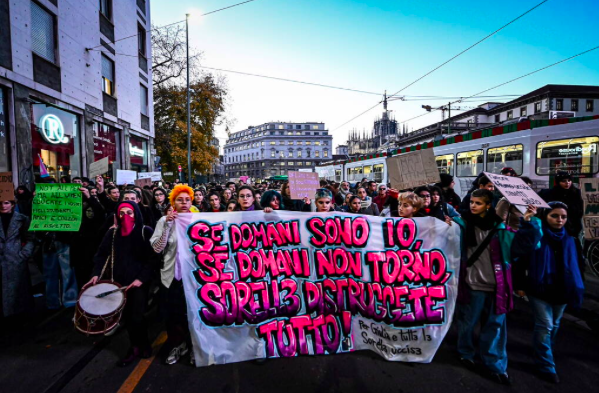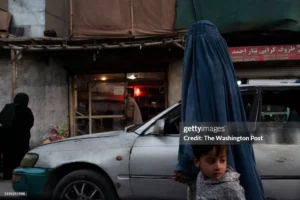A cry of despair
A public demonstration took place at Piazza VIII in Bologna where Italians expressed their discontent and despair regarding the silence around violence against women. The memory of Giulia Cecchettin was indeed commemorated and provoked great emotion, especially among students all over Italy. In Rome, the expression of anger took the form of burnt notices with the words “patriarchy” and “fascism”. In addition, thousands of people took part in a public demonstration in Rome and Milan on the 25th of November. This date was also the international day to end violence against women. This walk was dedicated to Giulia Cecchettin.
She did express fear and anxiety concerning the threats she received from her ex-boyfriend and the emotional blackmail she was the victim of. Even though she raised the bell, no action was taken when needed. This lack of action explains Italian’s anger. Indeed, Giulia Cecchettin is already the 106th woman murdered by her ex-boyfriend in Italy this year.
Time for a change
Giulia’s sister Elena Cecchettin made a powerful statement in the media Corriere della Sera, as she called for a deep change in society: “Monsters are not sick […] they are the saint children of patriarchy […]. Femicide is a state’s murder because the state does not protect us.”. Hence, the debate on state’s responsibility in femicides and their compliance with violent men is once again revived.
For Giula Cecchettin, and many victims of their boyfriends, lovers or husbands, signs of violence could have been recognized. Therefore, action could have been taken to avoid the tragedy. This reality testifies of a lack of measures designed to protect women when it comes to domestic violence.
On the 22nd of October, the two minutes of silence scheduled by the Italian minister of education Giuseppe Valditara were transformed into two minutes of noise, or “rumore” in italian. With these minutes of noise, the goal was to show that women’s voices should not be silenced anymore. This initiative was followed by a massive public demonstration in the streets.

A wake-up call for politics
Giulia Cecchettin’s murder seems to have provoked a wake-up call in Italy, and particularly in politics. The national debate of why violence against women is not tackled enough. The reason why it is still not a priority is once again at the front cover of political moves. It is thus a necessity to address femicides early enough in the school systems was highlighted by politics. Moreover, a new law to tackle violence against women was voted in Parliament.
This broad movement of indignation and revolt following the death of Giulia did push politics to take the issue of violence against women more seriously than ever. Indeed, they actively reacted. Numbers are clearly showing that femicides are more and more numerous each year. In Italy, a rise of 16% of femicides, according to the Italian Home Secretary, is visible between 2021 and 2022.










